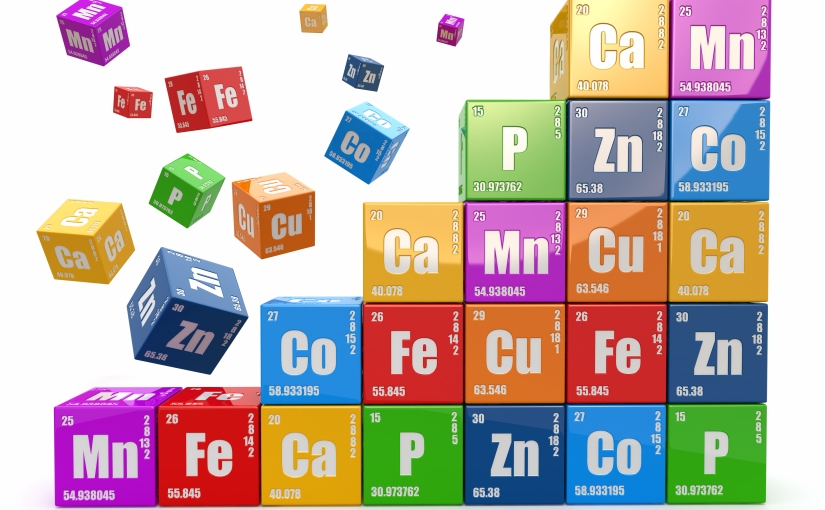It is a great pleasure to write on a topic which is close to my heart and that I am living every day, so I am excited about this opportunity to share my thoughts with you all in this article. I sincerely hope this article will give you some idea about Indian Chemical Industry & Role of a Chemical Engineer.
My name is Nimish Dixit, son of Narendrabhai Jethalal Dixit & Kokilaben Dixit. I have 16 years Plus of experience in the field of Chemicals and I live in Mumbai. I have started my journey by doing Diploma In Chemical Engineering followed by Graduation in Chemical Engineering from Thadomal Shahani Engineering College, Mumbai. I have also completed Family Business Management (F-MBA) from NMIMS, Mumbai and Executive Business Management Program (EBMP) from IGTC, Mumbai. In case of any question please reach out to me on my WhatsApp phone no. (+91 9892621336) or also note my e-mail: dixitnimish@gmail.com.
Indian Chemical Industry:
Indian Chemical Industry is 6th Largest in the World and Third in Asia. The Value of chemical Industry in India was estimated at USD 178 billion (approx. INR 13.3 lakh cr.) in 2019 covering over 80,000 commercial products, which accounts for 12.5% of Country’s total Industrial Output, 7% of Gross Domestic Product (GDP), 10% of total Exports and 20% of Taxes and Import Duty Collection. This shows that the Chemical Industry is a key industry in Indian Manufacturing sector, being an intermediate of manufacturing sector. Thus the performance of chemical industry reflects into and has favorable impact on other Industries and Manufacturing Sector as a whole. The Indian market size is further expected to grow and reach USD 300 billion (approx. INR 22 lakh cr.) by 2025.
Why Chemical Engineering?
Life as you know today, could not have existed without the remarkable contributions of Chemical Engineering. Today Chemical Industry, that offers more than 70,000 Products catering to almost every sphere of our activities rest on the plinth of Chemical PC`s, to Paper we write on, the water we drink, the fabrics that make our garments, their amazing spectrum of colors, the lifesaving drugs that bring us relief from pain, the fresh fruits and vegetables of better quality to eat etc., virtually thousands of all the consumer products and intermediates that without doubt continue to Improve our daily lives and lifestyles.
Chemical Engineering which deals with application of the principles of the physical sciences, together with the principles of economics and human relations to fields that pertain directly to processes and process equipment in which matter is treated to effect a change in state, energy content and composition.
In short, Chemical Engineering is about creating new material wealth via the chemical (or biological) transformation and/or separation of materials. This Involves processing of raw materials into a whole range of useful and profitable end Products.
A. Following are the Sectors where Chemical Engineers are employed.
Polymers
Catalysts
Fine and Specialty Chemicals
Industrial Gases
Paints, Varnishes, Lacquers, Pigments and Inks
Plastics, Synthetic Resins, and Composites
Pulp and Paper
Rubber and Rubber Products
Soaps, Detergents, Perfumes, Fats, Oils and Cosmetics
Synthetic Fibers, Textiles and Films.
In all of the above industries the function of a chemical Engineer is to apply the knowledge of Chemistry, Thermodynamics, Kinetics combined with Economics using co-ordinated scientific and engineering principles, with our highly developed analytical, project management and problem-solving skills to transfer the research of chemist into an economically feasible chemical Process.
Thus, to translate ideas into reality we need the knowledge of chemical engineering. The multifaceted job profiles that give recognition within Industry and Society, and the gratification that comes from working with the processes that meet the need of society, the financial reward, the zeal to face challenges are some reasons for us to be in chemical engineering.
B. Chemical Engineering Job Profile.
Process Design Engineer
Plant Process Engineer
Process Safety Engineer
Project Engineer
Consultant
Product Engineer
Research & Development Engineer
Project Manager
Control and Instrumentation Engineer
Environmental Consultant
Quality Control Engineer
Sales and Marketing Engineer
Educationalist/Professor
C. Some of the Outstanding Achievements of chemical engineering that drive us into this field are as below.
Food
Wonder Drugs for the Masses
The Environment
The Plastic and Synthetic Fibers Age
Liquified Air
Synthetic Air
Synthetic Rubber
Petrochemicals
The Atom
Starting from original Concept of scaling -up the laboratory experimental results of chemist to large scale operating plant, chemical engineering has evolved with rapid strides spreading its tentacles to almost every branch of engineering and science.
In the present scenario a young candidate aspiring to join engineering is left with but only one question to ask: “Where in Chemical Engineering?” rather than “Why chemical Engineering?”
There are many colleges and some IITs/NITs that offer Graduation (4 years or 8 semesters) or Post-graduation (2 years or 4 semesters) in Chemical Engineering. Here are details of subjects & study options these courses:
B. Tech Chemical Engineering Courses
Engineering Mathematics
Engineering Physics
Engineering Chemistry
Basic Electrical Engineering
Computer Programming Basics
Engineering Drawing
Advanced Chemistry
Fluid Flow Mechanics
Heat Transfer Operations
Mass Transfer Operations
Material and Energy Balance
Chemical Engineering Thermodynamics
Chemical Reaction Engineering
Chemical Process Safety and Utilities
Chemical Equipment Design and Drawing
Computer Programming and Numerical Methods
Computational Fluid Dynamics
Engineering System Design
Transport Phenomena
Chemical Engineering Economics
Process Dynamics and Control
Chemical Technology
M. Tech Chemical Engineering Courses
Advanced Numerical Methods
Analysis of Transport Phenomena
Chemical Reactor Theory
Computational Methods in Chemical Engineering
Fluid Phase Equilibria
Instrumental Methods of Analysis Lab
Chemical Process Design
Modern Control Theory
Modern Separation Processes
Process Modelling and Simulation
Analysis of Energy Engineering
Chemical Process in Industries
Advancement in Material Sciences and Technology




